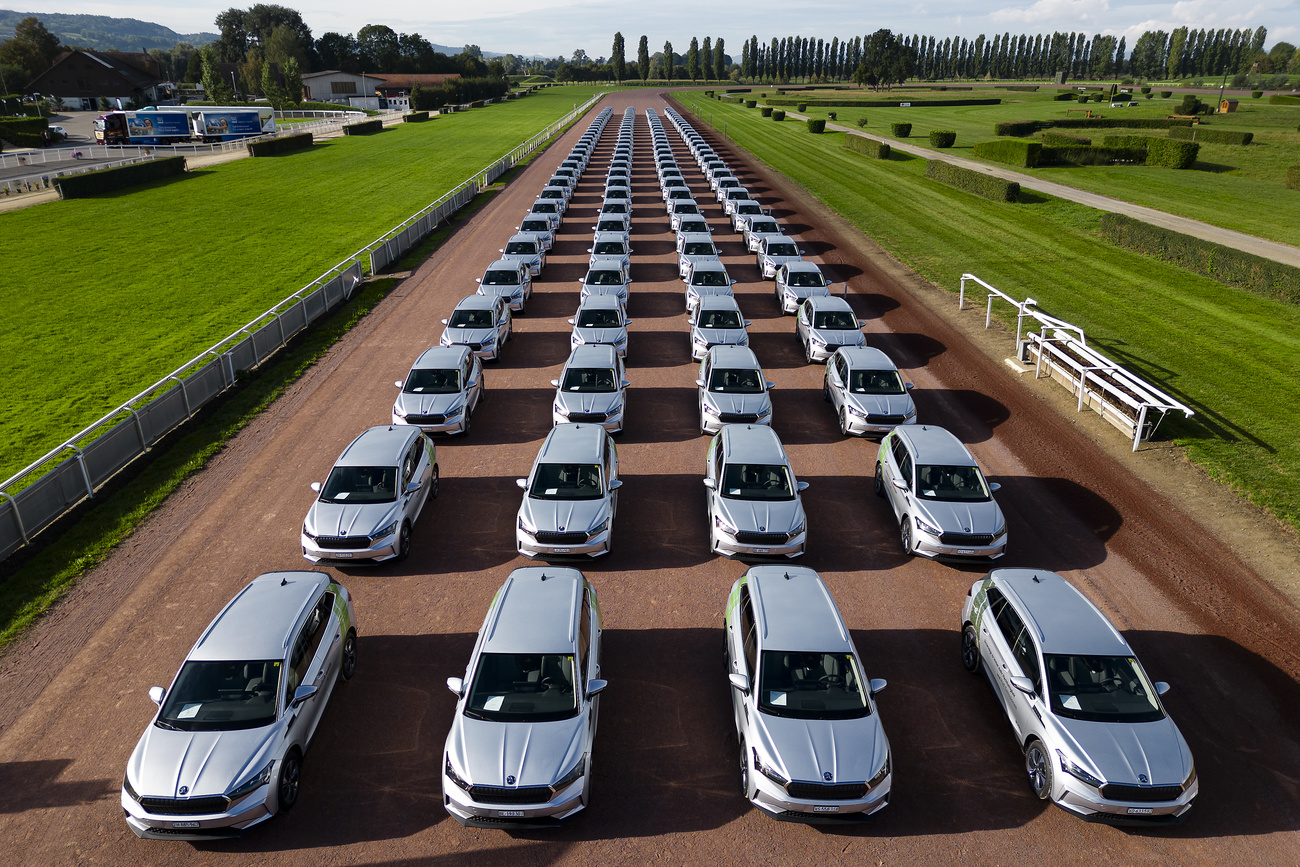Electric vehicle sales growth slows in Switzerland

One in five new cars (20.9%) sold in Switzerland in 2023 was a battery electric vehicle. Sales continued to grow last year but at a slower pace than expected.
Between the end of 2022 and the end of 2023, the market share of battery electric cars (BEV) grew from 17.3% to 20.9%, while plug-in hybrids rose from 8% to 9.2%. In total, 30.1% of new cars sold were electric-powered, Swiss eMobility said on Monday.
Overall, the share of petrol-engine vehicles sold in Switzerland dropped from 37.8% (2022) to 33.3% (2023), and diesel-powered vehicles slid from 11.7% to 9.3%.
As of January 1, 2024, 163,511 electric cars were in circulation on Swiss roads, out of a total of 4.5 million cars. It will probably take another twenty years for the entire fleet to be electric, according to projections by Swiss eMobility.
“The lack of home charging stations is slowing down development,” says Swiss eMobility. The problem in Switzerland is that a landlord can prevent tenants from installing a charging terminal, lamented eMobility director Krispin Romang.
+ Lack of charging stations holds back Swiss EV revolution
Switzerland has roughly 17,000 public charging points (+4,000 more than a year ago), which represents one of the densest networks in the world. But private charging stations and a stronger commitment from public authorities are needed, says Romang.
+ 2.8 million electric vehicles on Swiss roads by 2035
“Due to worse framework conditions than the European average, we are constantly being overtaken by our neighbours. We have lost touch with Scandinavia and the Benelux countries (Belgium, the Netherlands and Luxembourg) when it comes to electrification,” he says.
+ Switzerland scraps electric car tax exemption
Geoffrey Orlando, the head of the Swiss eMobility office in Yverdon, says 2024 will be a challenging year. “The right for residents to have access to charging infrastructure must be established in Switzerland and the public authorities must encourage the installation of charging infrastructure for all,” he says.
For the third year in a row, an electric car was the best-selling model in Switzerland last year: the Tesla Model Y (6,172 were sold, or +1,537 more than a year ago). Next came the Skoda Enyaq (5,159 or +2065) and the Audi Q4 (3,666, +1920).
German-speaking residents were the main buyers of electric vehicles. Most were bought by people in canton Zurich (25% of all electric cars sold), ahead of the cantons of central and eastern Switzerland.
Among utility vehicles, the electric market share in new registrations reached 8% for trucks in 2023, and 13% for light utility vehicles.
This news story has been written and carefully fact-checked by an external editorial team. At SWI swissinfo.ch we select the most relevant news for an international audience and use automatic translation tools such as DeepL to translate it into English. Providing you with automatically translated news gives us the time to write more in-depth articles. You can find them here.
If you want to know more about how we work, have a look here, and if you have feedback on this news story please write to english@swissinfo.ch.

In compliance with the JTI standards
More: SWI swissinfo.ch certified by the Journalism Trust Initiative


















You can find an overview of ongoing debates with our journalists here . Please join us!
If you want to start a conversation about a topic raised in this article or want to report factual errors, email us at english@swissinfo.ch.